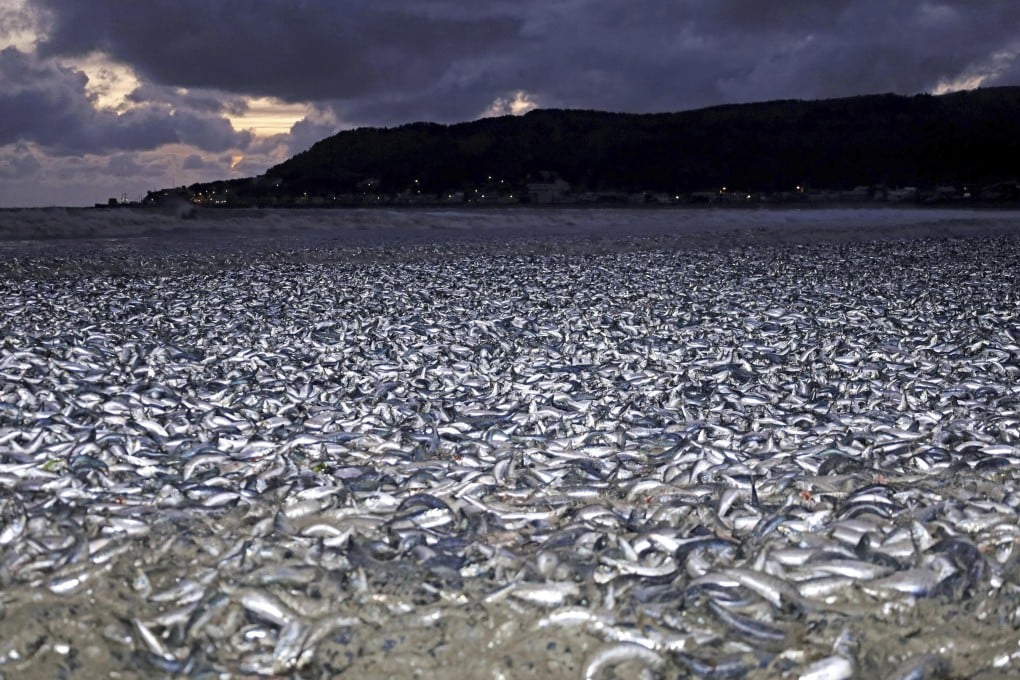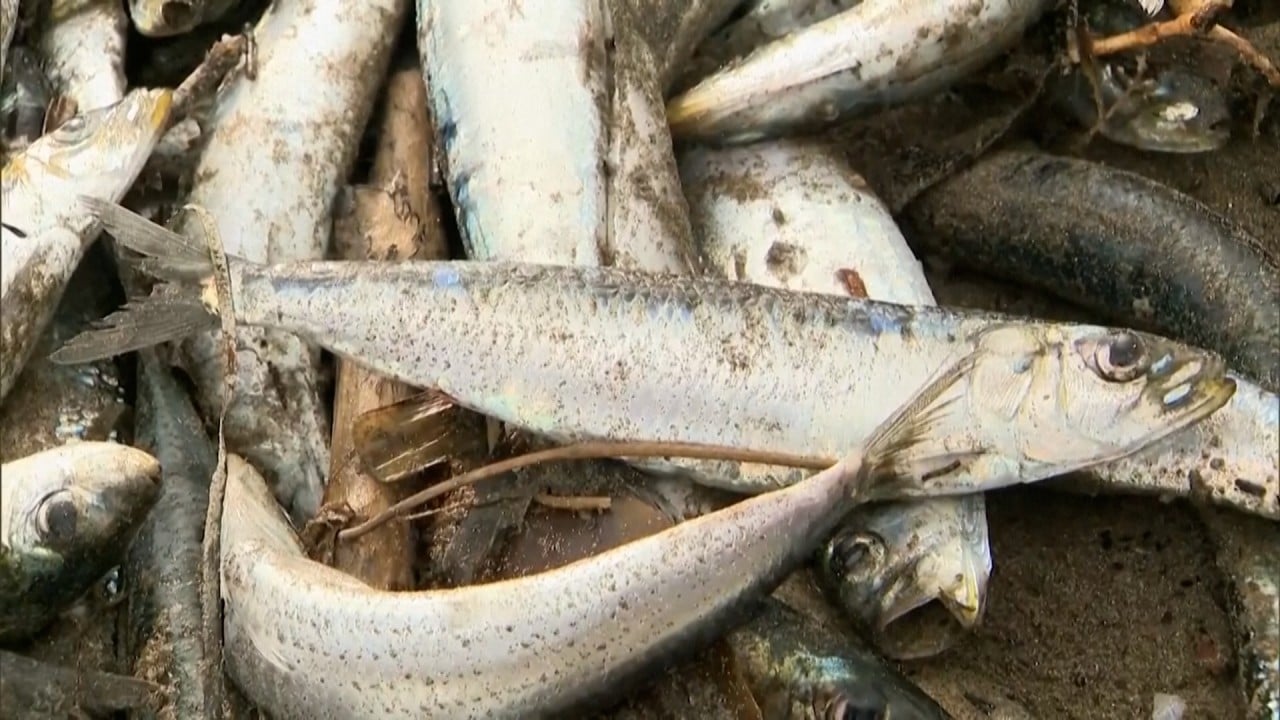Japan mass fish death: did lack of oxygen kill at least 1,000 tonnes of sardines and mackerels at Hokkaido beach?
- Another possibility that led to the mass death at the northern village of Toi was the much colder water experienced by the fish during migration
- Local residents have ignored a warning from officials and picked up piles of the fish for their consumption

Marine biologists have concluded that the fish in Hakodate, Hokkaido Prefecture, died from a lack of oxygen in the water in one of two possible scenarios.
The first theory is that the fish were being hunted by predators and were herded into the shallow bay by the village of Toi, where the huge numbers of fish quickly consumed all the available oxygen in the water.
The alternative suggestion is that the fish encountered a sudden pocket of significantly colder water on their migration route, which weakened them.
The fish began washing ashore on December 7, with television footage showing the 1.5km shoreline ankle-deep in the silver fish. Local officials estimated that around 1,000 tonnes of fish had come ashore but suggested the actual figure might be higher.
